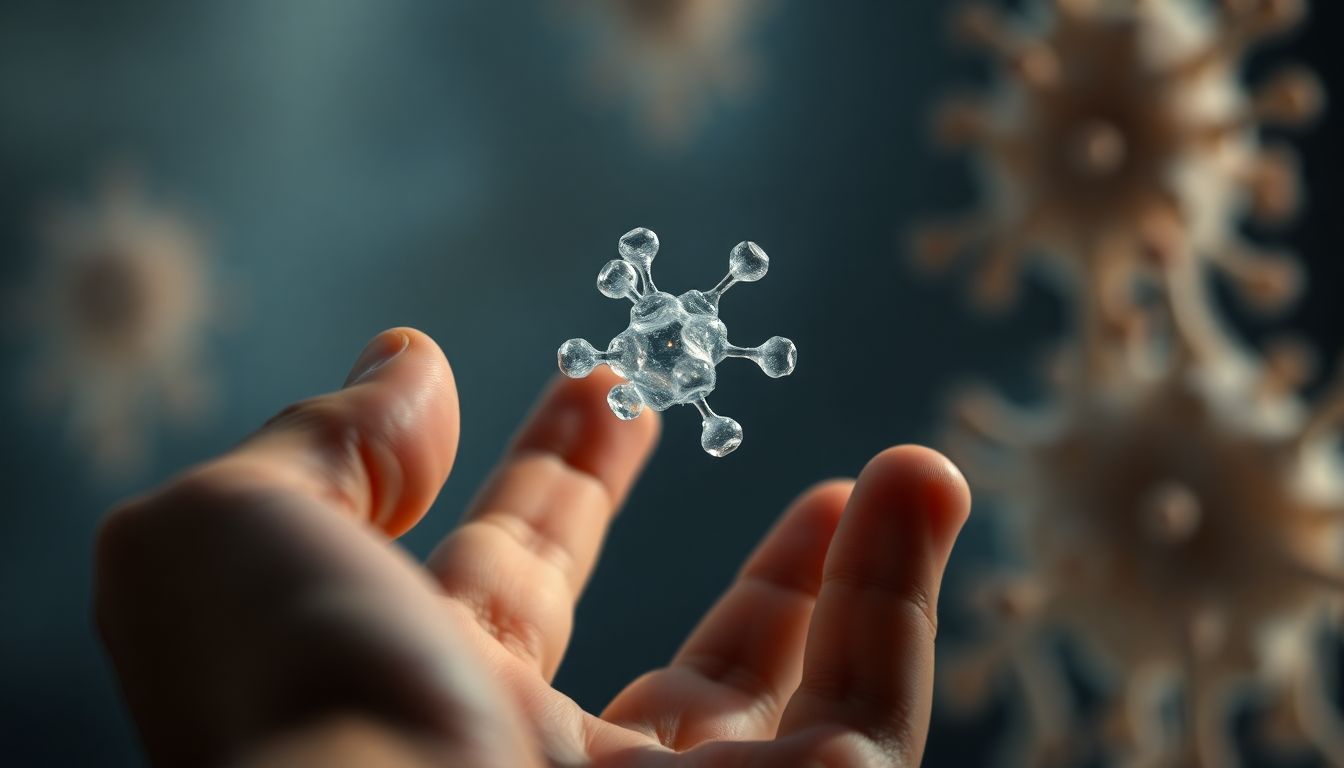
What Happens When Your Body Lacks Protein? The Serious Consequences of Protein Deficiency
The human body needs protein to function properly. From muscle growth to immune defense, protein plays a critical role in our health. When we don’t get enough, it can lead to serious problems.
The Silent Threat of Protein Deficiency
The Hidden Dangers of Insufficient Protein Intake
Many people overlook protein in their diets. It’s easy to think you’re getting enough, but factors like lifestyle, dietary choices, and health conditions can affect protein levels. Understanding the dangers of low protein intake is essential to maintaining health.
Protein's Crucial Role in Bodily Functions
Protein is a building block for cells and tissues. It helps create enzymes, hormones, and other body chemicals. The body relies heavily on protein for growth and repair, and deficiencies can disrupt these processes.
Why Understanding Protein Deficiency is Critical
Ignoring protein needs can have serious consequences. It's important to recognize the signs and symptoms of protein deficiency to take action before problems escalate.
Muscle Loss and Weakness: The Visible Signs of Protein Deprivation
Muscle Atrophy and Reduced Strength
Without enough protein, your muscles can start to waste away. This condition, known as muscle atrophy, leads to weakness and a decrease in overall strength. Simple tasks may become difficult.
Impact on Physical Performance and Activities of Daily Living
Reduced protein means reduced physical performance. Whether it’s lifting groceries or exercising, insufficient protein can hinder your daily life. That lack of energy might keep you from enjoying activities you love.
Case Study: Observational study of protein deficiency in elderly populations
Studies show that elderly individuals often face protein shortages. Research indicates that low protein intake in seniors can lead to higher rates of muscle loss and increased frailty, making it crucial for aging populations to prioritize their protein intake.
Impaired Immune Function: Increased Vulnerability to Illness
Protein's Role in Immune Cell Production
Protein is vital for producing immune cells and antibodies. Insufficient protein can lead to a drop in these key components of immunity, leaving the body defenseless against pathogens.
Increased Susceptibility to Infections and Diseases
With weakened immunity, the risk of infections increases. Simple illnesses may take longer to recover from, and chronic conditions could worsen due to the lack of proteins that help in healing.
The Link Between Protein Deficiency and Weakened Immunity: Research Findings
Studies indicate a direct relationship between protein intake and immune function. Low protein levels can result in higher rates of illness, emphasizing the need for adequate protein in one’s diet.
Problems with Bone Health: Increased Risk of Fractures
Protein's Contribution to Bone Density and Strength
Protein isn’t just for muscles; it’s crucial for bone health as well. Adequate protein contributes to bone density, which helps prevent fractures and osteoporosis.
Osteoporosis and Protein Deficiency: Evidence from Clinical Trials
Clinical trials have shown that individuals with low protein intake are at higher risk for osteoporosis. Bones can become weak and brittle, leading to fractures even from minor falls.
Dietary Strategies to Improve Bone Health in the Face of Protein Deficiency
Incorporating protein-rich foods such as dairy, lean meats, legumes, and nuts can enhance bone strength. Maintaining a balanced diet can help mitigate the risks associated with protein deficiency.
Fatigue and Reduced Energy Levels: The Impact on Daily Life
The Metabolic Consequences of Protein Deficiency
A lack of protein can disrupt metabolism, leading to fatigue. Your body relies on protein to convert food into energy; without it, you may feel sluggish and tired.
Protein's Role in Energy Production and Metabolism
Proteins are essential for energy metabolism. When protein levels drop, your body struggles to produce the energy needed for daily activities.
Practical Strategies for Combating Protein Deficiency-Related Fatigue
To fight fatigue, prioritize protein-rich meals. Eggs, fish, beans, and dairy can help restore energy levels and improve your overall vitality.
Other Health Risks Associated with Protein Deficiency
Slowed Wound Healing and Impaired Tissue Repair
Lack of protein impairs your body’s healing processes. Cuts and wounds may take longer to heal due to insufficient collagen and tissue repair proteins.
Hormonal Imbalances and Their Effects
Hormones rely on proteins for their synthesis. A deficiency might lead to hormonal imbalances, causing mood swings, sleep disturbances, and other health issues.
Potential Risk of Kidney Stones (with proper caveats)
In specific cases, excessive protein can strain the kidneys; however, low protein can lead to other complications. Always consult with a healthcare professional before making dietary changes.
Conclusion: Prioritizing Protein for Optimal Health
Key Takeaways: Understanding the Importance of Adequate Protein Intake
Recognizing the signs of protein deficiency is vital. Making protein a priority in your diet can prevent various health issues.
Actionable Steps: Incorporating More Protein into Your Diet
- Include protein at every meal
- Explore diverse sources like legumes, dairy, and lean meats
- Consider protein supplements if needed
Resources for Further Information and Support
For more details on protein deficiency and nutritional guidance, consult health organizations, dietitians, or nutritionists who can help craft a balanced eating plan. Prioritize your health by ensuring you consume enough protein.

-min.png)


.jpg)

0 Comments